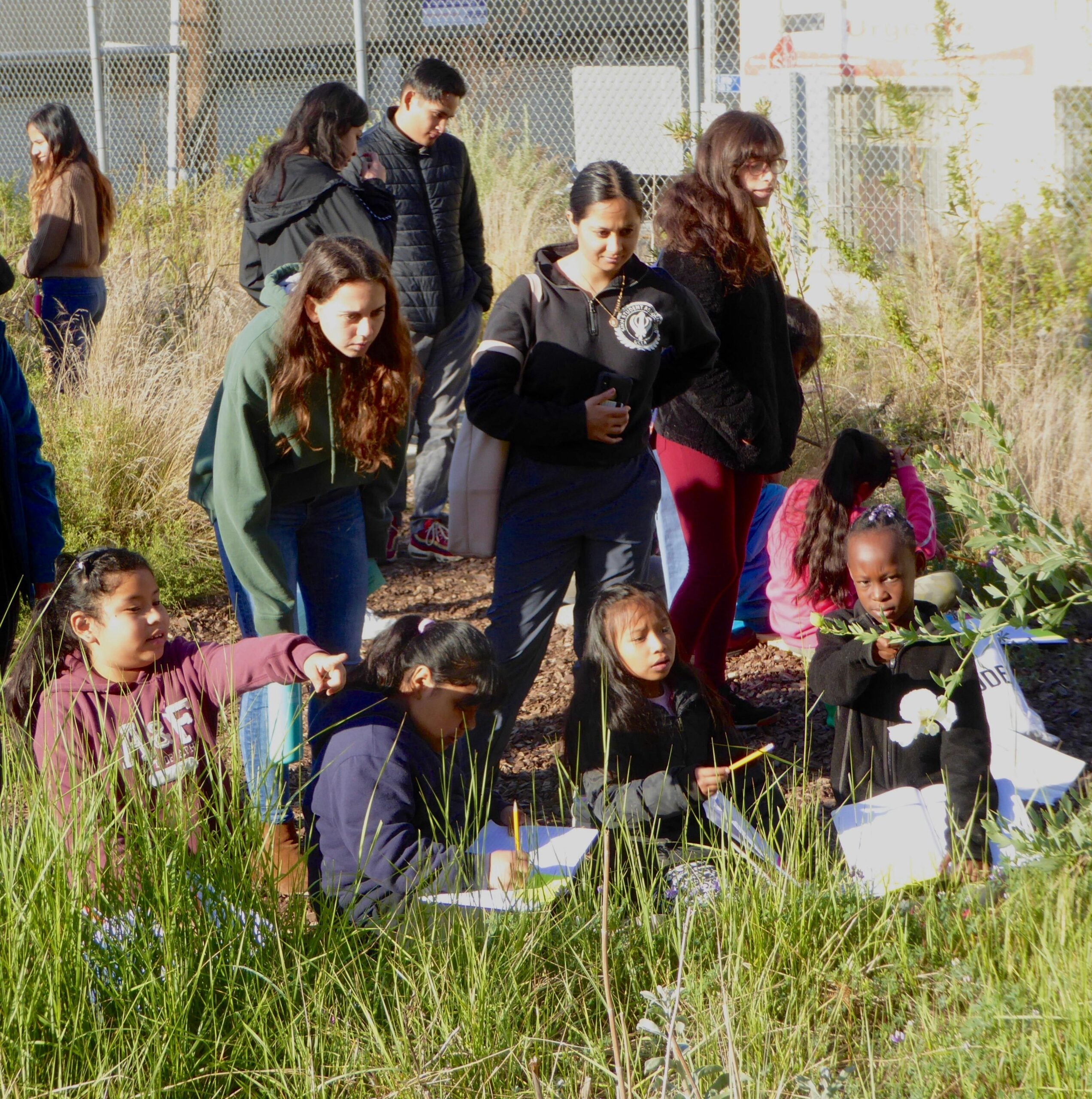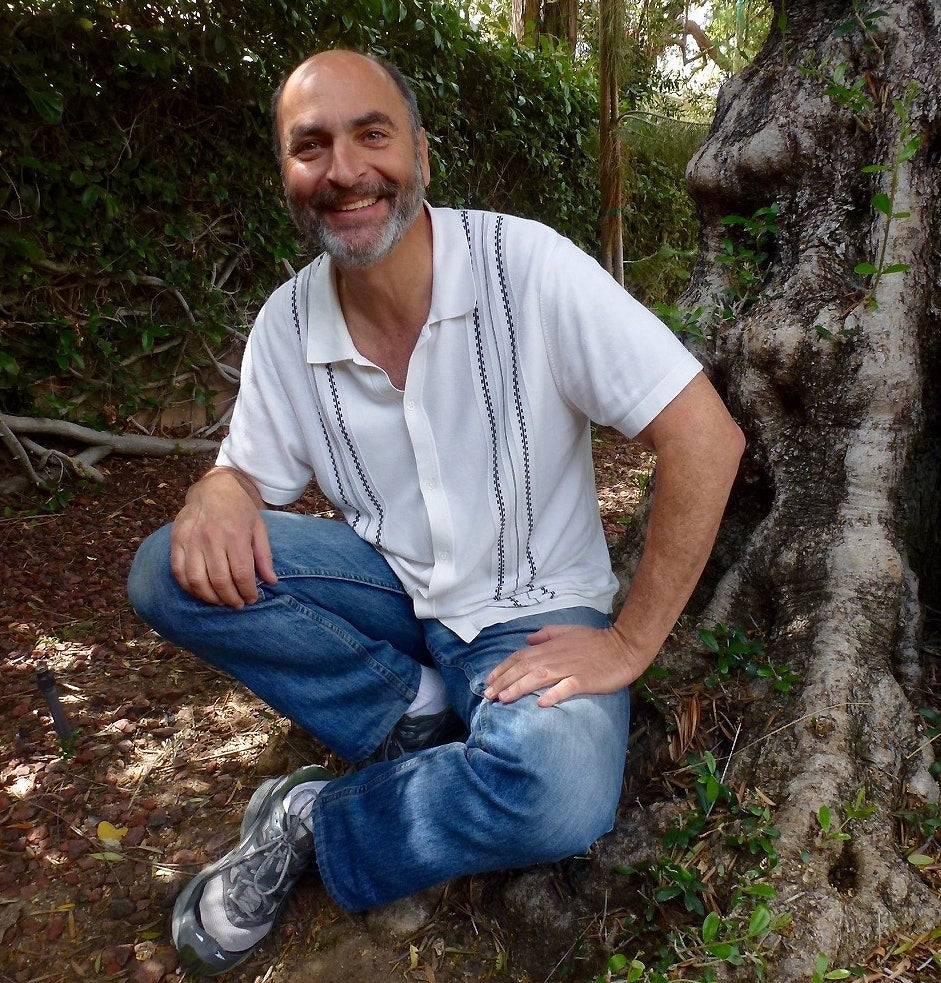Jeff Share’s students were not newcomers to Zoom this spring, having used the technology in his courses for several years. Although the faculty advisor for the Teacher Education Program at UCLA Center X acknowledges the many challenges to moving K-12 education to remote platforms in the wake of COVID-19, he did note that there are some advantages as well. Share recalls a course he taught last spring.
“One of my undergrad classes Zoomed in and connected with one of my former TEP students, Jenna Mirander, who’s an alumna teaching 3 grade,” he says. “My students joined Jenna’s class online and watched her teaching her students. She had a guest speaker who was in Ireland, broadcasting live from her cell phone to the 3 graders at Hillcrest Elementary, which is in the Baldwin Hills area. It was amazing. She was talking about gardening and showing the students her farm and plants and everything … and my UCLA undergrads were observing the whole thing. That was very cool.”
This experience illustrates the power of showing the interconnectedness of the planet to students – and the aims of a special issue of The Journal of Sustainability Education on ecomedia literacy, for which Share (’06, Ph.D., Education) served as co-editor with Clare Hintz, the journal’s editor-in-chief; Theresa Redmond, associate professor at Appalachian State University; and Antonio López, a leading expert on ecomedia education. The issue was concurrently published in The Journal of Media Literacy.
Share is the co-author of “Teaching Climate Change to Adolescents: Reading, Writing, and Making a Difference,” and of “The Critical Media Literacy Guide – Engaging Media and Transforming Education.”
In the wake of the COVID-19 pandemic and the societal shift to moving more aspects than ever of human life and work into the digital realm, Share discussed the impacts of these on the environment, the knowledge that could be gained from indigenous cultures, and how critical media literacy and social justice can bring about sustainable, interconnected change that can ultimately improve life for all species on this planet.

Ampersand: How has the COVID-19 pandemic made issues around critical media literacy and environmental justice much more urgent?
Jeff Share: The amount of information and misinformation is exacerbated now with the popularity of social media and the culture of media spectacle that has replaced traditional news reporting. In March, the Secretary General of the UN warned the world that we are not only facing a pandemic, but we are also in the midst of an infodemic of misinformation. The amount of false information has been increasing largely by bogus conspiracies like the movie that went viral on Facebook called “Plandemic.” It is full of outrageous lies that claim everyone is already infected and face masks just activate the virus. This is a professionally produced documentary that looks highly credible and takes critical thinking and analysis to see through the false claims and separate the truth from the lies.
This spreading of false information is very similar to what we have been seeing with the climate denialists. There has been a strategic attack on climate science, trying to create doubt about the evidence, that all fit into the same frame of what we’re seeing with the attacks on the science about the pandemic and these movements to stop sheltering in place and to open the country before businesses and schools are ready. In our issue on ecomedia literacy, Antonio López and I write about this attack on science that has been spreading fake news and false equivalences about climate change. There is also an excellent essay by Rachelle Marshall in which she deconstructs propaganda that was sent to over 300,000 science teachers in the U.S. to spread disinformation about the scientific consensus of global warming.
&: In the context of the societal, economic, and racial inequality that the pandemic has exposed, how do the issues of environmental justice arise while trying to maintain a safe and relatively comfortable way of life?
Share: One of the things we tried to do with this issue of The Journal of Sustainability Education is to explore ways that media messaging is framing the public discourse about our relationship with the natural world and what educators can do about this. We have an article in which two alumni of UCLA’s Teacher Education Program, Lizzette Mendoza, a teacher, and Brad Rumble, a principal, discuss how they are bringing environmental justice to elementary school students. There is also an essay in which Isaijah Johnson, an undergrad at UCLA, analyzes a new genre in climate fiction called “solarpunk,” that offers stories of a hopeful future that can emerge from our climate crisis.
What’s happening now with the pandemic is exposing many deeper issues, like economic inequalities, systemic racism, environmental exploitation, and the role that technology is playing to exacerbate these problems. We are seeing a huge boom for technology companies. Digital platforms like Amazon, Google, and Facebook are making a fortune. So much of the information communication technology is based on extraction and practices that are harmful to the planet. The increase in shipping and deliveries contributes to global warming and the exploitation of labor around the world. While we hear claims about the essential workers, in practice we’re sacrificing people and our finite resources. The richest man in the world, Jeff Bezos at Amazon, ended hazard pay for his workers while he is making billions in profit during the pandemic.
I think we shouldn’t try to go back to what people talk about as the old norm, the way we used to be. This is our opportunity to move to a new way of thinking and living. Global capitalism and the structures of massive corporate farming and shipping products around the world that we could grow or create right in our own neighborhoods is part of the problem. Community gardening and locally grown food is one of the solutions. Also, public transportation, with more localized, smaller community-centered living is going to be a necessity for sustainable survival.
&: Where can we find some of the answers?
Share: Learning from indigenous cultures and places where people have been living far more sustainable lifestyles for a long time is a key rather than trying to reinvent the wheel.
Numerous indigenous communities carry out ways of living that for thousands of years have sustained their communities and the environment. Many indigenous leaders are on the frontlines of the environmental struggle, being attacked and killed around the world. Indigenous activists in the Amazon and in the U.S. have been fighting this battle for a long time and we need to look to them for leadership. In our journal we have an essay by Four Arrows that explores the role of indigenous cultures and the sacredness of words and truthfulness.
In our editorial overview, we mention Naomi Klein and Arundhati Roy’s ideas about how these are moments of opportunity, creating possibilities for change that can go in either direction. Arundhati Roy called the pandemic a “portal” that we can pass through to a new world of possibilities.
We have a choice in which we can continue along our path of disaster capitalism, privatizing and exploiting, taking over the commons to privatize and squeeze every last drop out of our finite world. Or this can be a point where we recognize just how interconnected we all are. We’re seeing more than ever that we are all interdependent on each other. One disease in one part of the world can affect the entire planet.
And yet we have the ability to change. Who would have believed a year ago that all over the world, we would all stay inside our homes? The main excuse not to fund the Green New Deal or other environmental proposals was that we didn’t have the money. But look how quickly we were able to come up with these trillion-dollar bailouts. So, we have this tremendous potential to make change – the kind of change we saw during the World Wars and the Great Depression.
&: How can ecomedia literacy ensure not only a shift to thinking and lifestyles that are sustainable for the planet but will put social justice at the fore?
Share: Education alone will never solve everything, but ecomedia literacy brings an understanding of the importance of stories, the way information is framed and shared is crucial to our understanding the issues. We are finally recognizing that the environmental movement must be focused on social justice. Climate change and pollution affect everyone, but not equally.
The poor and most marginalized are always hurt worse by the effects of environmental contamination. And it is often the people in the poorest areas, especially the southern hemisphere who are blamed for exploitation of natural resources and overpopulation while the rich nations in the northern hemisphere have in fact been causing far more damage to the environment and are more responsible for problems such as deforestation and global warming.
This systemic understanding has not always been recognized and was in fact one of the big pitfalls of the environmental movement. For years, environmentalists in the U.S. were fighting against labor – tree huggers vs. tree cutters, jobs or the environment. We can’t do that anymore and fortunately for many of today’s environmental organizations, there are now movements that weave together social justice and environmental justice as an interconnected struggle.
Our resources are finite – animals and plants are going extinct, the earth is already overtaxed with pollution and CO2. Education needs to focus on environmental justice, shifting the way we live and think about all life, human and non-human, and building a more empathetic and caring society in balance with the natural world, where we realize that we are all profoundly interconnected and dependent upon each other.
Photo by Michael Dressler
